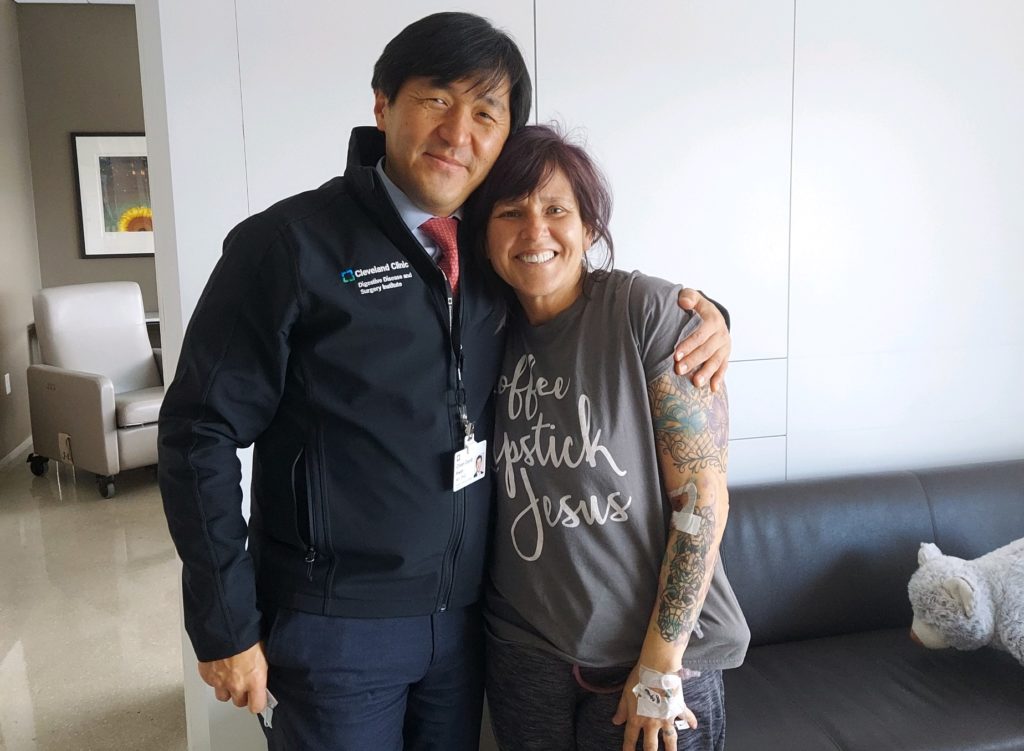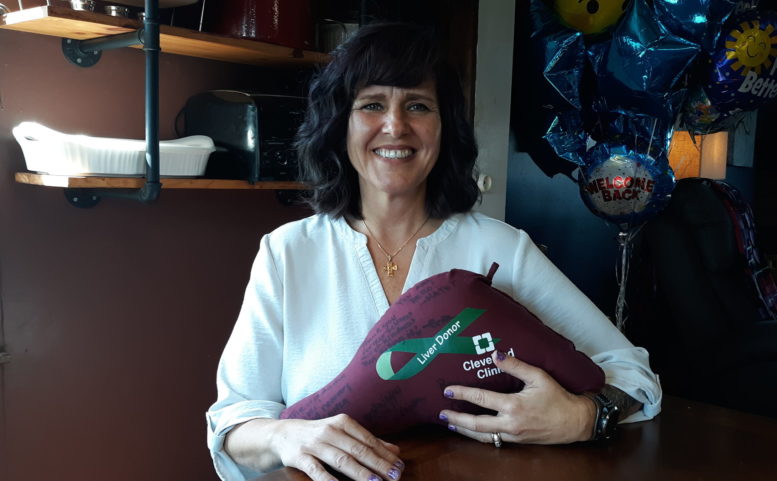By JAN LARSON McLAUGHLIN
BG Independent News
Caroline Lippert always knew she would be an organ donor – she just thought it would be once she was done with her body.
Then she found out she didn’t have to wait.
“We’re capable of saving lives while we’re still alive,” said Lippert, 51, of rural Bowling Green.
Earlier this month, Lippert donated a second organ to someone desperately in need.
“Over 100,000 people are waiting for organs,” she said. “About 19 die a day, waiting for an organ.There are not enough deceased donors.”
Lippert, an employee of the Wood County Auditor’s Office, first became an organ donor in 2016 when her mother-in-law was facing kidney failure and was on dialysis.
“Her quality of life really plummeted,” said Lippert, who found she was a match with her mother-in-law.
The donation required Lippert to make some lifestyle changes herself, including taking up running and losing weight – eventually 100 pounds.
“Me saving my mother-in-law’s life really saved mine,” she said.
During the donation process, Lippert learned that organs from living donors last longer than those from deceased donors.
“They get a little bit more miles out of it,” she said. And she learned how many people never receive a life-saving transplant. “We didn’t know how many people die while waiting.”
So she started contemplating her next donation. Her husband, Ted, and two adult children were very supportive, but asked her to wait five years from her kidney donation.
When that target passed, and Lippert’s health was still excellent, she started pursuing her next step.
“I started looking into liver donations,” she said. She learned that a person can donate the right lobe of the liver to an adult, and the left lobe to a child. Within two months, the regenerating liver is back to functioning normally, she said.

Lippert connected with Cleveland Clinic’s Dr. David Kwon, an expert at laparoscopic liver transplants. Because she was a previous organ donor, she was only allowed to donate a left lobe for a child. She asked to remain anonymous.
“I wanted to stay anonymous,” she said. “I just wanted to do my part to save lives.”
Her husband, Ted, admitted to being worried about Caroline, but said he wasn’t going to stand in her way.
“I was a little bit nervous, but very proud of her for doing it,” he said. “She was led by God to do it, so I didn’t want to interfere with that.”
Lippert said she will continue to promote live organ donations.
“I’m a big advocate,” she said. “I don’t think people know what they are capable of right now. Do it while you’re still walking.”
Lippert speaks about organ donation at UTMC, where she donated a kidney, and she frequently competes in races, wearing a shirt that says “I run on 1 kidney.”
“I know I want to continue advocating,” she said. “It’s very fulfilling.”
While identifying organ transplant wishes on a driver’s license is admirable, why wait, Lippert said.
All assessments to become a donor are free, and the medical bills are all paid for by the recipient’s health insurance, she said. Even if the transplant doesn’t occur, the potential donor has no expenses. And grants are available for people who miss work during recovery time.

